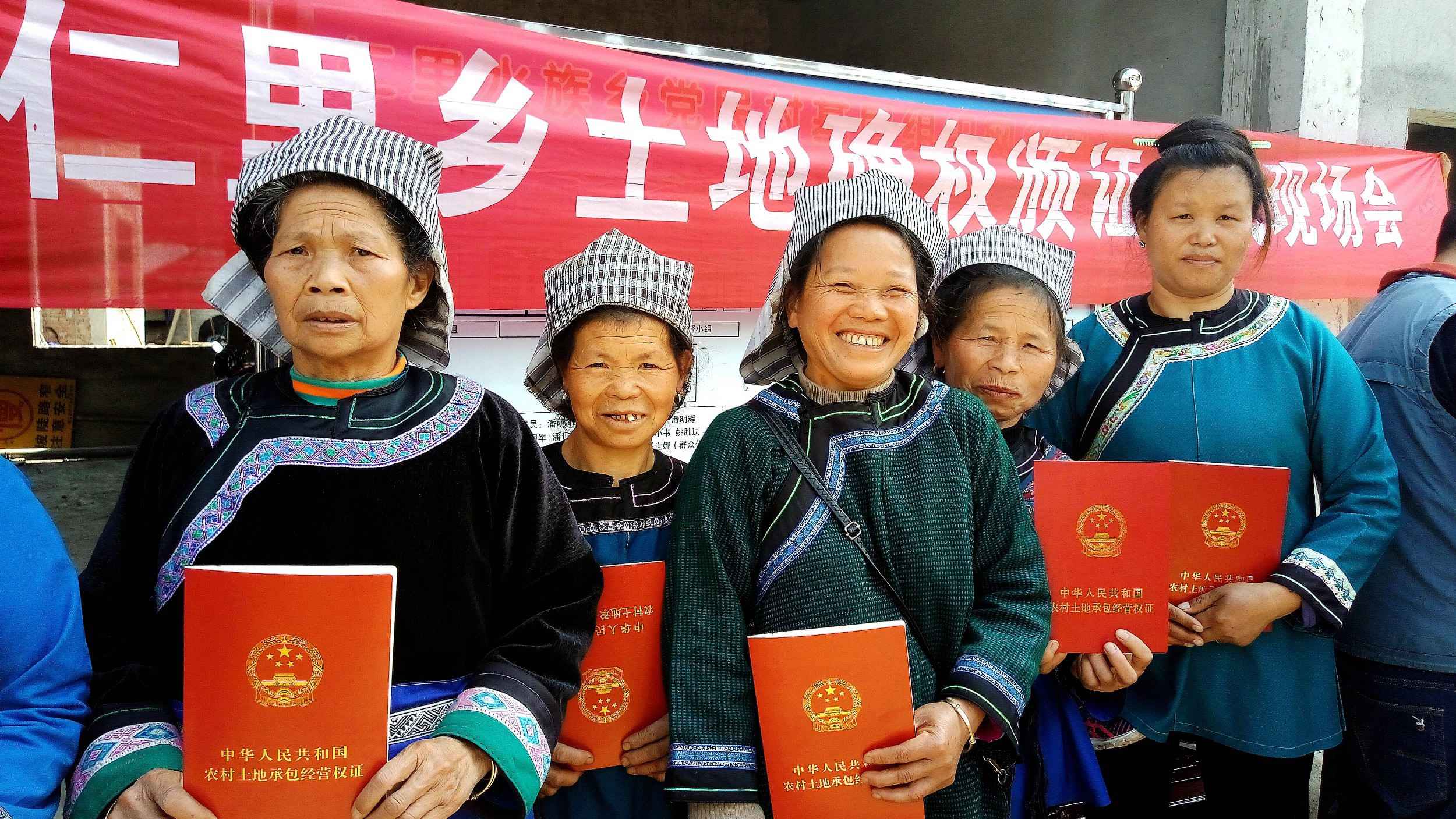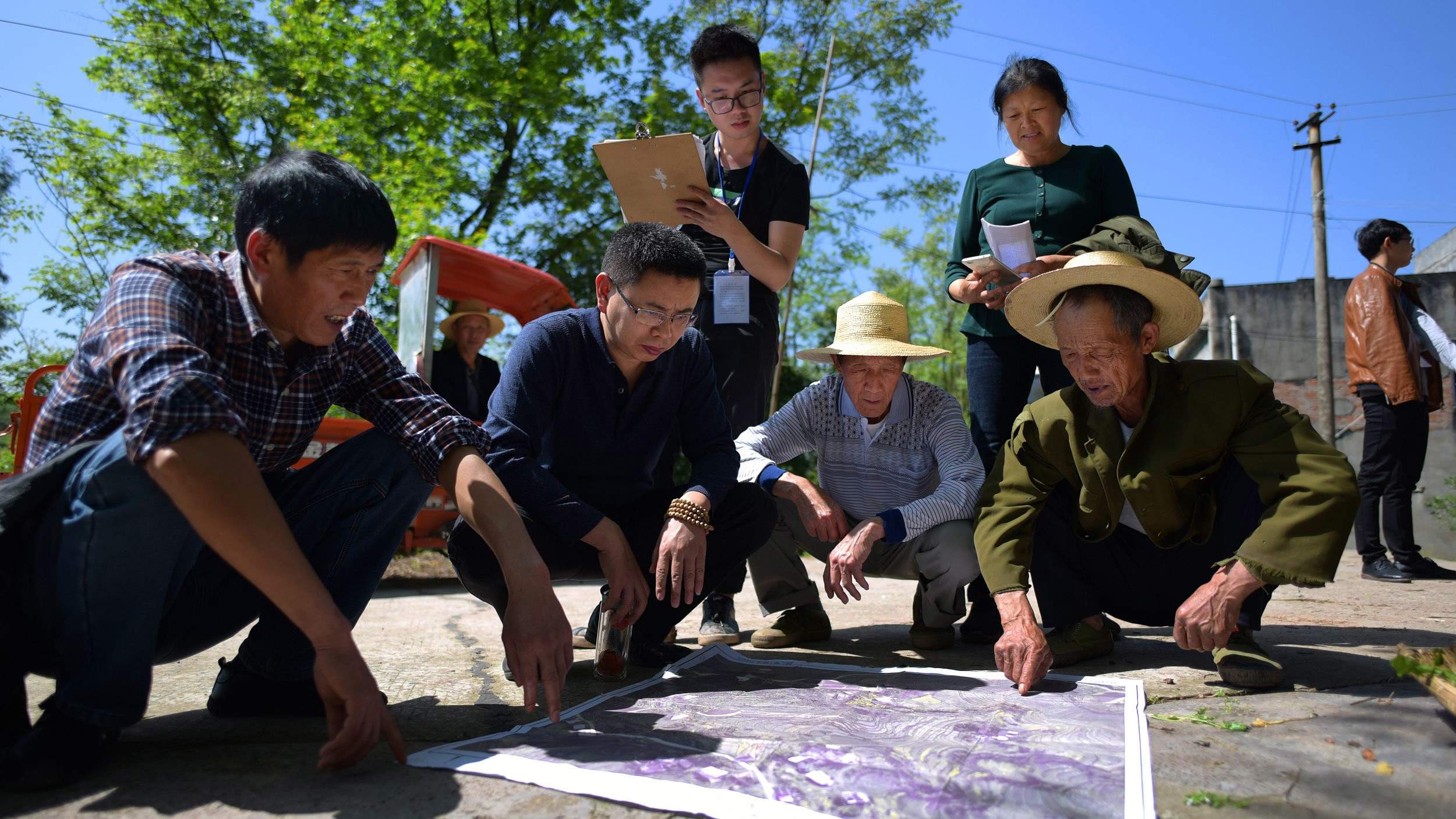
18:02, 28-Feb-2019
Highlight - What’s the Ownership Right of Land?

Of the three rights involving land, ownership rights seem dominant. Who owns the land? It is said that the collective owns it, but who or what is the collective? Robert Lawrence Kuhn asked this question of Zhang Hongyu, director of the Economic System and Management Department at the Ministry of Agriculture and Rural Affairs.

Staff and villagers discuss land rights on April 3, 2018 at Yongping village in Chongqing’s Wanzhou district. More than 50 staff participated in the land rights confirmation process, and eight groups have completed field mapping. /VCG Photo
Staff and villagers discuss land rights on April 3, 2018 at Yongping village in Chongqing’s Wanzhou district. More than 50 staff participated in the land rights confirmation process, and eight groups have completed field mapping. /VCG Photo
“It’s fair to say that China’s rural land system is somewhat unique worldwide with its own characteristics. The administrative village collective is entitled to the so-called rural land collective ownership. This needs clarification. In the structure of the three rights, the right of ownership dominates. The Chinese government specifies that no matter how the land is transferred or how the system is reformed, we must adhere to the nature of rural land collective ownership. We call it ‘insisting on the fundamental importance of rural land ownership’. To put it in another way, there are four major elements involved in ownership: that is, the right to own, to use, to benefit from, and dispose of land.
How do we understand the right to dispose of land? First, the collective, through joint research, determines to which household the land is allocated and how large the land is. Second, how long does the ownership last? Of course the government has laws regulating it. However, under the legal framework, considering the fact that the population of communities and the general situation changes over time, the collective also has the right to make adjustments, with the agreement of majority of villagers. Third, if certain contractor households commit violations—for example, if they fail to till the land for several years in a row while land resources are scarce—the collective has the right to punish them.”
SITEMAP
Copyright © 2018 CGTN. Beijing ICP prepared NO.16065310-3
Copyright © 2018 CGTN. Beijing ICP prepared NO.16065310-3